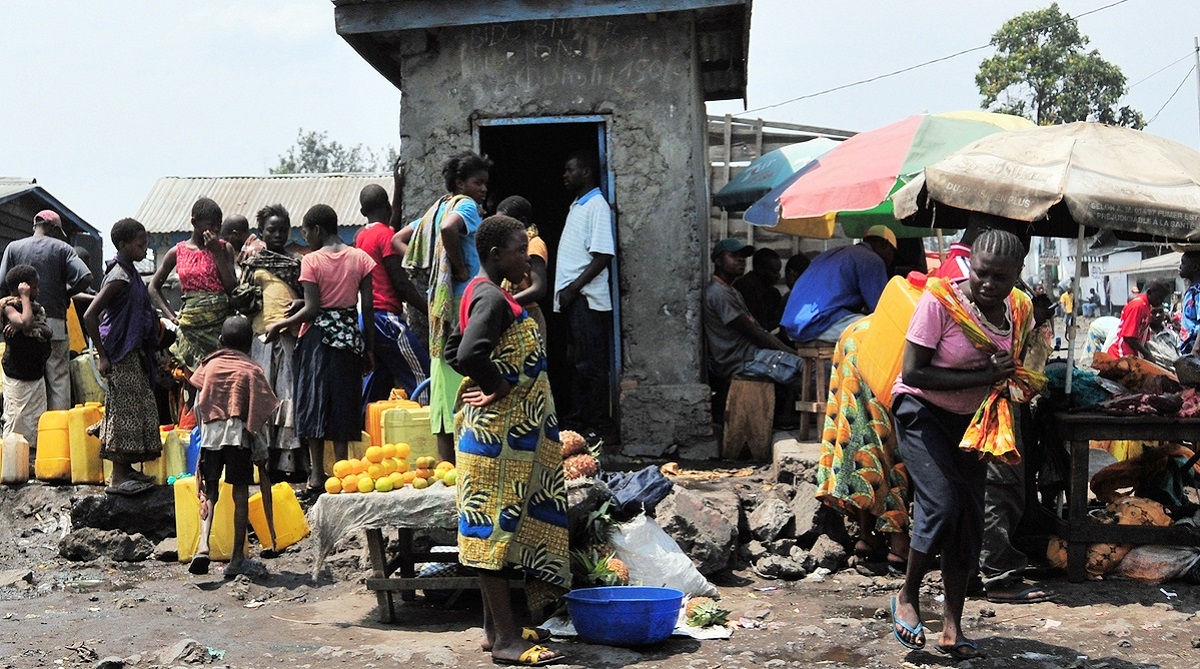Felix Tshisekedi re-elected President of Congo: Electoral Commission
Moise Katumbi, one of the main opposition candidates, attained the second position with about 18 per cent of the votes, according to the Commission.
It is a paradox of history that democracy has eluded the Democratic Republic of Congo.

Goma, Democratic Republic of the Congo - August 12, 2010: water distribution - women with jerrycans - photo by M.Torres. (Image: iStock)
The message is stunning, so incredible indeed that the UN Secretary-General has urged the rival factions of the African nation to refrain from violence in the aftermath of what appears to have been a thoroughly dubious election. It is a paradox of history that democracy has eluded the Democratic Republic of Congo, which has longed for its first democratic transition of power since 1960, the year of independence from Belgium.
Sixty years after, the country is still floundering in its quest for democracy and fair elections. After waiting for two years for the historic tryst to fructify, the clock has been turned back with Friday’s very unlikely result in the Congo. The outcome is as quirky as it is unprecedented, prompting comparisons with the first election rigged by the government in favour of an opposition candidate. It thus comes about that Felix Tshisekedi is said to have defeated not only President Joseph Kabila’s handpicked successor, Emmanuel Shadary, but also the clear frontrunner, Martin Fayulu, who has denounced the results as an “electoral coup”. In a sense, the message of this bizarre development has been addressed no less to the likes of Kabila. His government has left half of DRC’s 80 million people living on less than a dollar a day, despite its immense mineral resources. At another remove, he and those around him ~ notably the defeated Shadary ~ have amassed enormous wealth amidst the overwhelming privation in Congo and the continent of Africa in the wider canvas.
If data garnered by human rights groups is any indication, thousands of civilians have been killed by security forces and armed groups in the past two years. A devastating humanitarian crisis continues and the principal beneficiaries are Kabila’s cronies. The outgoing President was able to hold on to power ever since his father was assassinated in 2001. Elections were consistently postponed as he sought to carry on after reaching the two-term limit on the presidency in 2016. Protests were suppressed and when he did call elections, he barred western observers… as did the Awami League in Bangladesh recently. It has been a deeply suspect election, by any reckoning. A fire, which remains a mystery, destroyed voting machines, polls were delayed, and an Ebola outbreak precluded voting in certain parts of the country, not to forget the endemic violence. Widespread irregularities were followed by the inordinate wait for results. Suspicions intensified when the government shut off the internet.
Advertisement
The incoming Head of State will succeed to a direly depleted inheritance. It is pretty obvious too that voters are hoping for a scintilla of honesty in governance ~ a scarce commodity in the Democratic Republic of Congo for the past 60 years. Ergo, the tryst with democracy ~ horribly delayed though it is ~ has turned out to be of lesser moment in the overall construct. Psephology has targeted the legacy of corruption and sloth.
Advertisement